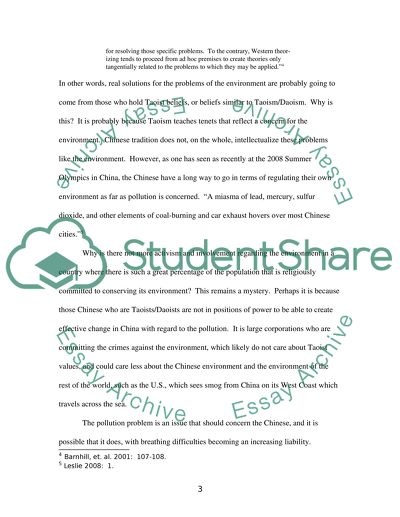Cite this document
(Todays Daoist: An Ecological Perspective Assignment, n.d.)
Todays Daoist: An Ecological Perspective Assignment. Retrieved from https://studentshare.org/environmental-studies/1511611-the-meaning-of-daoist-concepts-of-8220nature8221-andor-8220technique8221-and-their-possible-inspirations-for-today8217s-cosmology-or-ecology
Todays Daoist: An Ecological Perspective Assignment. Retrieved from https://studentshare.org/environmental-studies/1511611-the-meaning-of-daoist-concepts-of-8220nature8221-andor-8220technique8221-and-their-possible-inspirations-for-today8217s-cosmology-or-ecology
(Todays Daoist: An Ecological Perspective Assignment)
Todays Daoist: An Ecological Perspective Assignment. https://studentshare.org/environmental-studies/1511611-the-meaning-of-daoist-concepts-of-8220nature8221-andor-8220technique8221-and-their-possible-inspirations-for-today8217s-cosmology-or-ecology.
Todays Daoist: An Ecological Perspective Assignment. https://studentshare.org/environmental-studies/1511611-the-meaning-of-daoist-concepts-of-8220nature8221-andor-8220technique8221-and-their-possible-inspirations-for-today8217s-cosmology-or-ecology.
“Todays Daoist: An Ecological Perspective Assignment”, n.d. https://studentshare.org/environmental-studies/1511611-the-meaning-of-daoist-concepts-of-8220nature8221-andor-8220technique8221-and-their-possible-inspirations-for-today8217s-cosmology-or-ecology.


